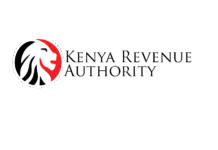The Kenya Revenue Authority (KRA) is banking on tax policy reforms, expanded tax base, and increased ministry-generated revenues to achieve an ambitious revenue collection target of over Ksh.4 trillion in the 2025/26 financial year and beyond.
According to the 2025 Budget Policy Statement, the government will rely heavily on KRA’s domestic resource mobilization efforts to boost national economic activity and reduce dependency on borrowing.
At the core of this plan is the implementation of the National Tax Policy and the Medium-Term Revenue Strategy (MTRS) for 2024/25–2026/27. The strategy aims to enhance tax compliance, minimize tax expenditures, and seal existing revenue leakages.
“The implementation of tax administrative reforms will target to reduce tax expenditures that now stand at 3.38 percent of GDP, thereby adding revenues,” the statement noted.
To further boost revenue, the government will also focus on non-tax income, particularly from services offered by Ministries, Departments, and Agencies (MDAs). This complements KRA’s drive to broaden the tax base and rationalize tax structures to foster domestic production and attract investment.
The Tax Amendment Act, 2024, is expected to play a pivotal role in this shift. It introduces measures such as increased tax-free pension contributions, tax cuts for Post-Retirement Medical Funds, pension benefits tax exemptions, and a tax amnesty program, all geared toward offering relief to taxpayers while enhancing revenue collection.
In tandem with revenue efforts, the government also plans to implement strict expenditure control measures. These include austerity policies to reduce recurrent spending, the rollout of an end-to-end e-procurement system to ensure transparency and value for money, and the piloting of a Human Resource Management System to manage the public wage bill more efficiently.
To further ease the burden on public finances and improve service delivery, the government will scale up the use of Public Private Partnerships (PPPs) for viable projects and fast-track governance reforms in state corporations.
Together, these strategies form a comprehensive framework to support Kenya’s fiscal sustainability while fostering economic growth and investment.
Written By Rodney Mbua



















